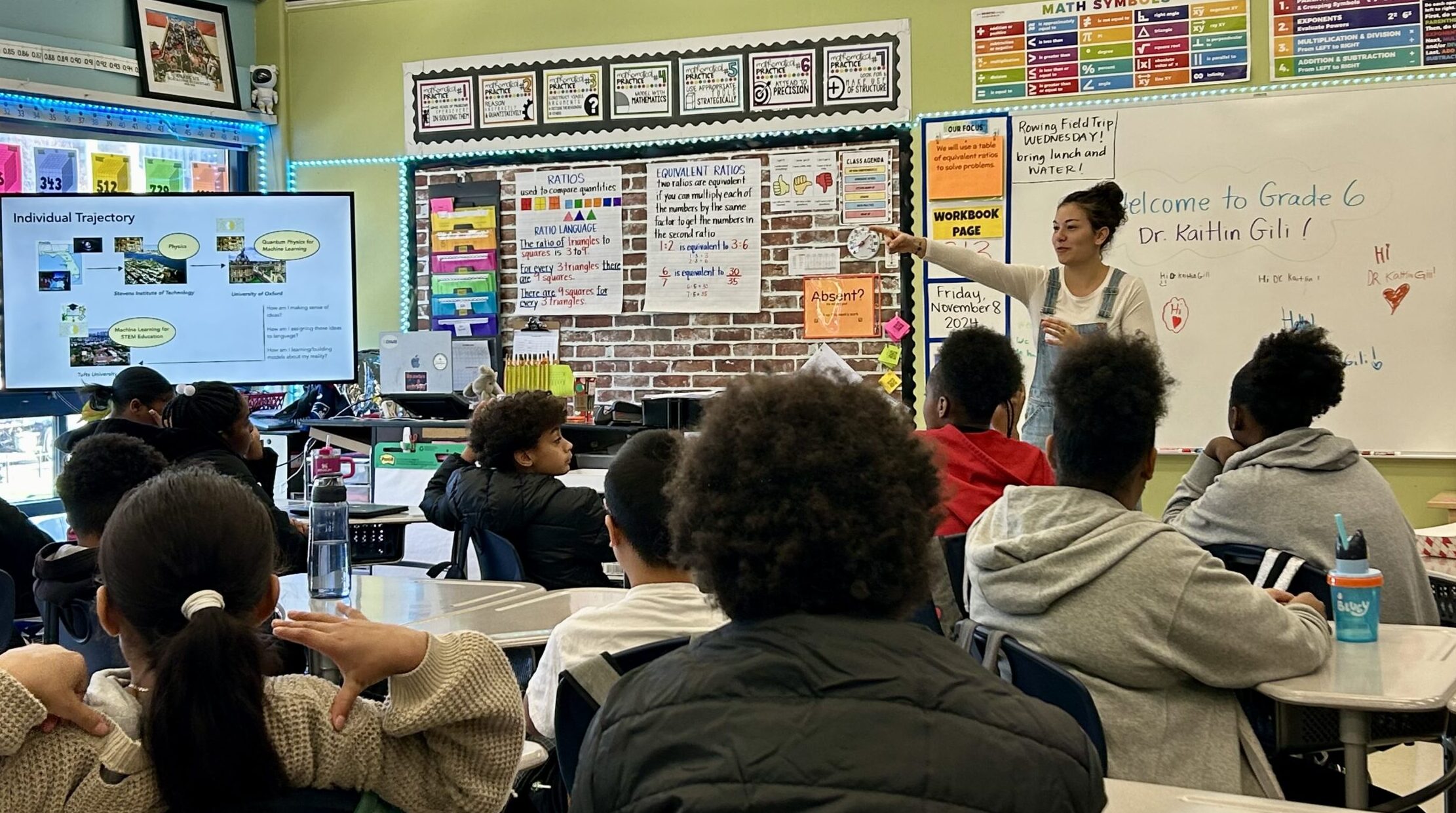Dr. Kaitlin Gili is a postdoctoral researcher in the Computer Science Department at Tufts University where she’s analyzing machine learning as it relates to human learning. She obtained her PhD from the University of Oxford in the field of quantum physics and machine learning with a full fellowship from the U.S. Army Research Office. Recently, she had a dynamic Pathfinders visit with Kelly Lewis’s 6th grade math class at the Blackstone School.
“Becoming a Scientist” was the primary focus of the visit, however, the conversation organically meandered from quantum physics to the origins of the universe to nanobots, flying cars, neuroscience, and more. The class was thoroughly engaged and excited to hear about Dr. Gili’s career path and interests and they offered many thoughtful questions and comments throughout the presentation.
Incidentally, the class had just completed a unit on thermal energy, so a lively discussion ensued about converting 0 Kelvin into Fahrenheit. Dr. Gili didn’t know the answer off the top of her head, so she took a moment to look it up. It was a wonderful way to model for students that adults – even post-doctoral researchers – don’t know all of the answers either and that’s okay to admit when you don’t know something. Even better, Dr. Gili got to model how to use the knowledge you do have to find an answer. By the way, the answer to the question is -450 degrees Fahrenheit, and it signifies the point at which particles theoretically stop moving.
When moving onto a discussion about atoms and their significance, Dr. Gili’s discussion of entanglement fascinated students. Entanglement is when measuring the state of one atom instantly reveals the state of the other, even if they are physically separated by a large distance. Several astute students commented that this concept is not possible for humans, as we need technological instruments such as phones or computers to connect with friends and family living a distance away.
The visit concluded with a cerebral discussion on the importance of learning, the uses of physics, math, and science in your everyday life, and where the future of technology is headed. Among the many examples offered by Dr. Gili, such as modeling traffic behavior and creating an infrastructure to support flying cars, students also shared that measuring ingredients for cooking and calculating the amount taxes to pay were equally important uses of science and math. Dr. Gili ended the session by asking the sixth graders why they like learning and why they thought people learn. The students shared that in their opinion, the purpose of learning is “to gain knowledge” to which every adult in the room wholeheartedly agreed.

